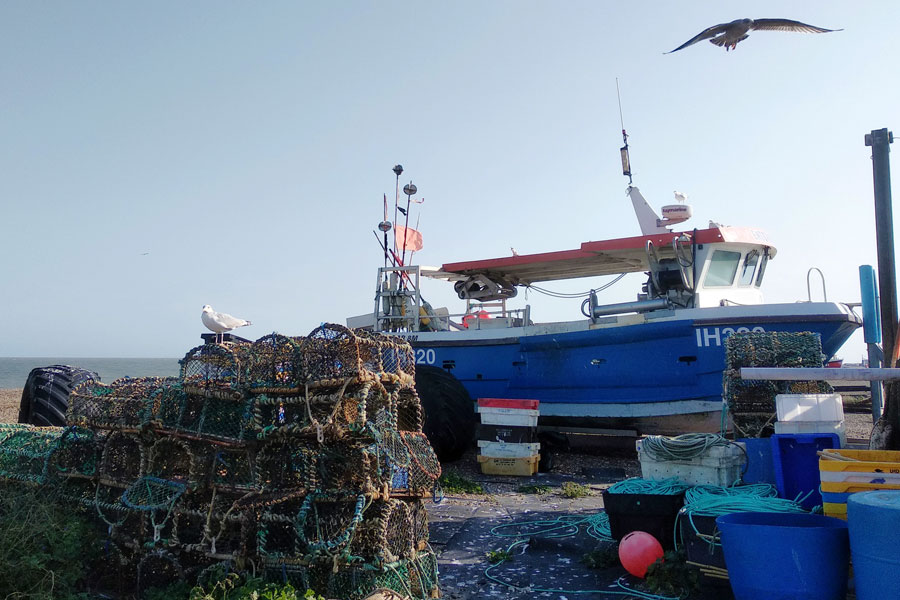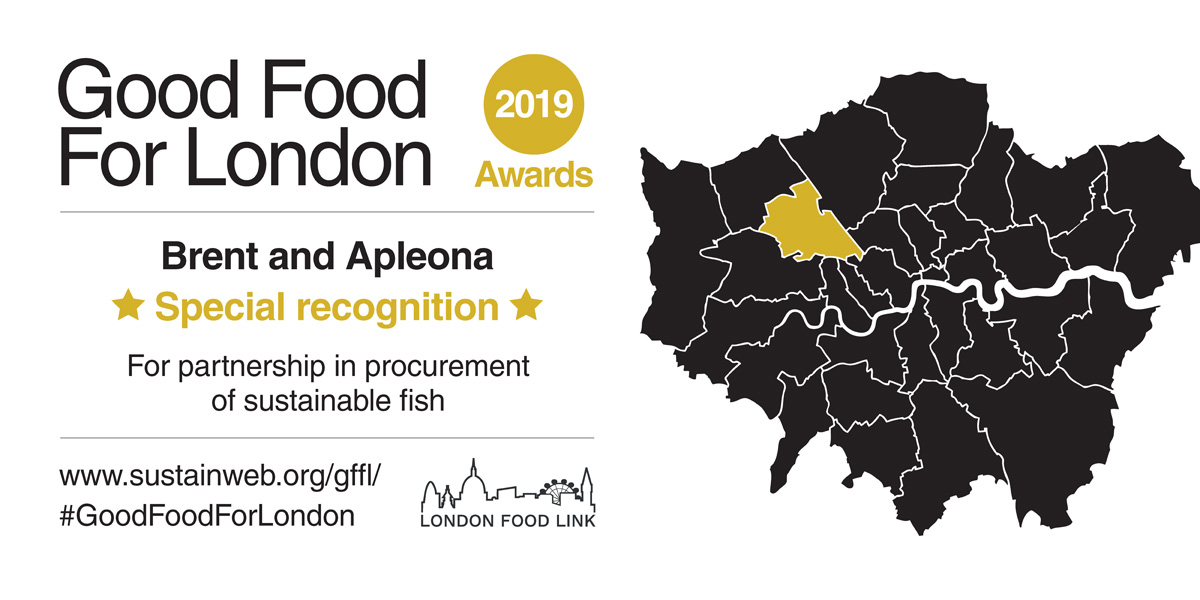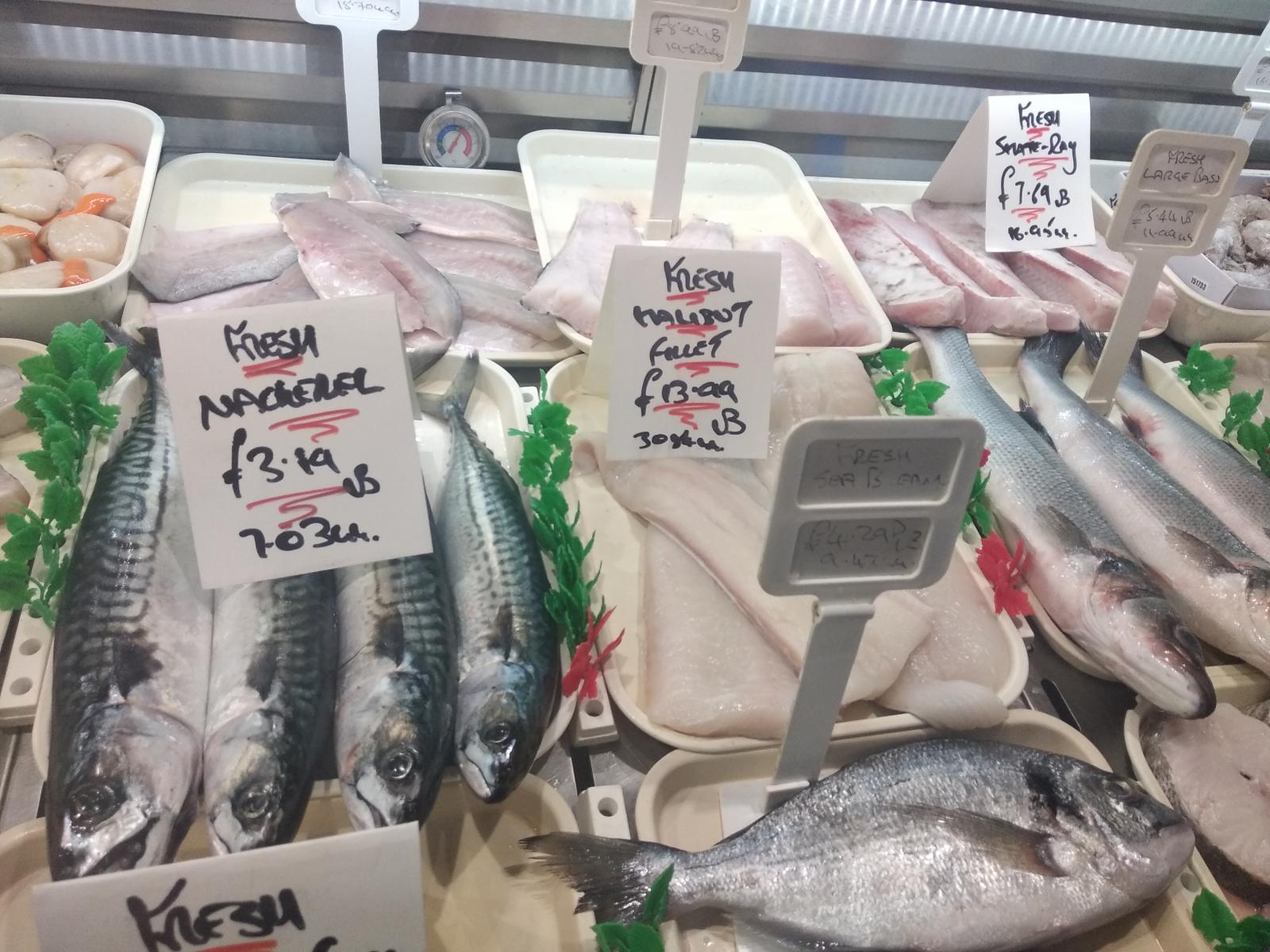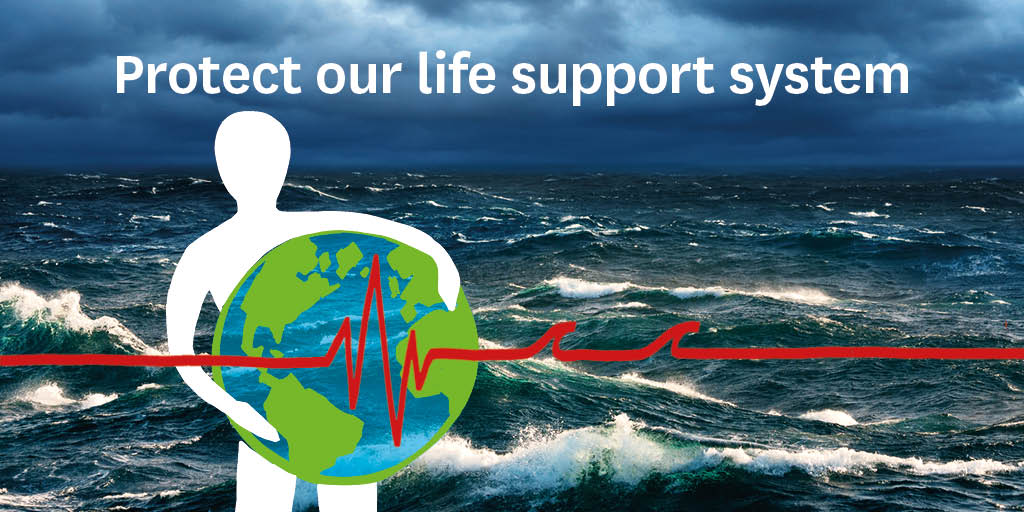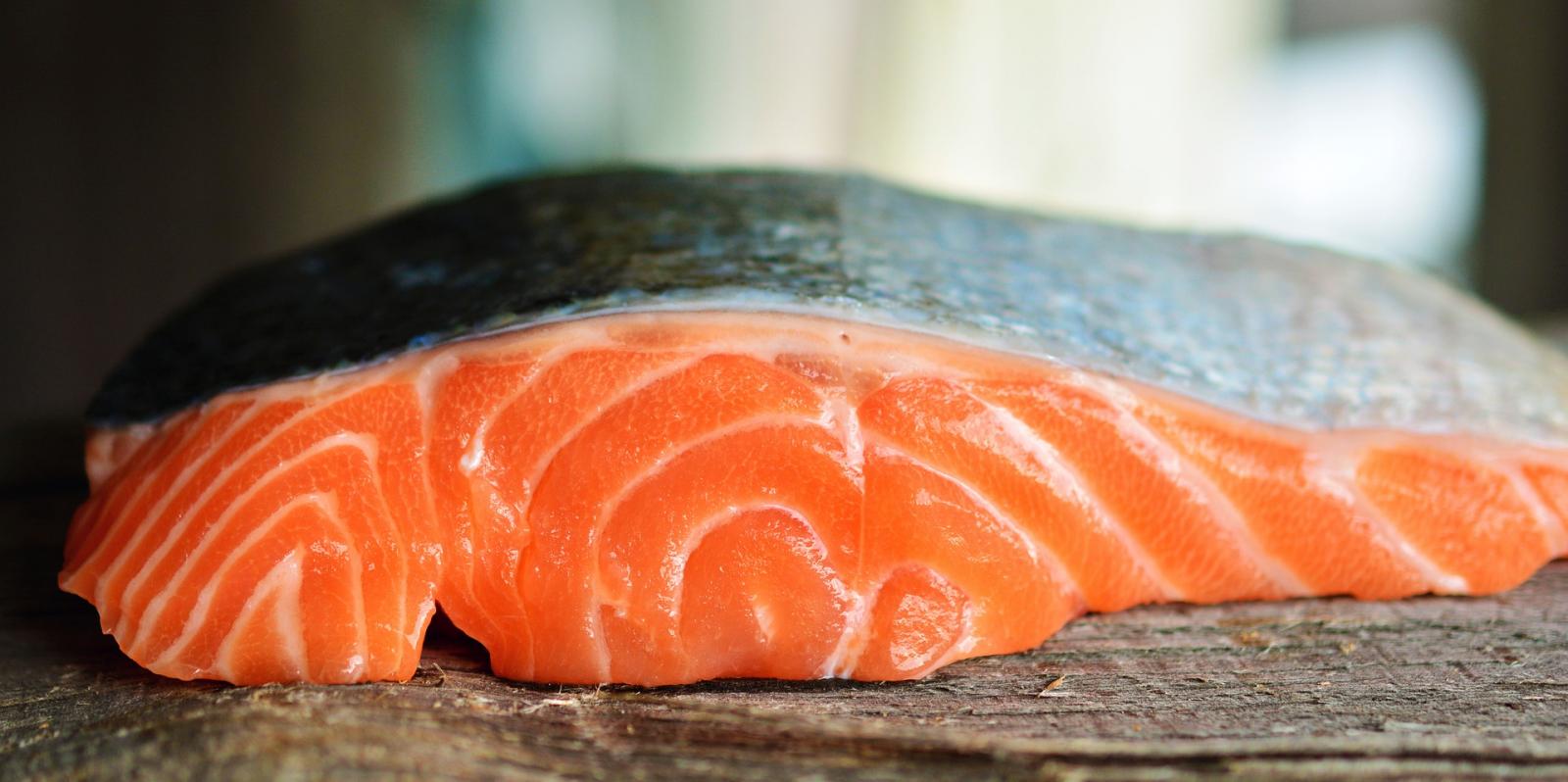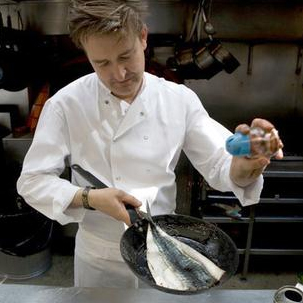Rio 2016 Olympics and Glasgow 2014 Commonwealth Games declared a 'triumph' for sustainable fish
Conservation groups have united in welcoming sustainable fish-buying policies announced over the last two weeks by the organisers of the Rio 2016 Olympics [1] and the Glasgow 2014 Commonwealth Games [2]. This means that only verifiably sustainable fish will be served as part of the 16 million meals to be consumed by athletes, spectators, staff, journalists and dignitaries during these two major international sporting events.
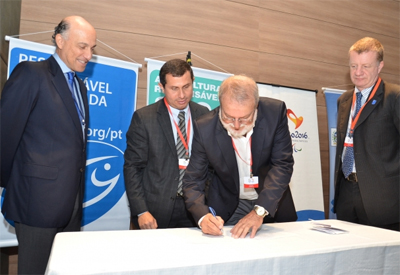
"This is a fantastic example of sustainability legacy from the London 2012 Olympic and Paralympic Games,” said Ruth Westcott, Coordinator of Sustainable Fish City [3], an alliance of conservation groups that advised on the London 2012 sustainable fish policy [4]. “London 2012 was the first ever major international sporting event to adopt a sustainable fish policy for wild-caught fish, setting the pace that others are now following. It's a triumph to see the Glasgow 2014 Commonwealth Games adopting a similar fish policy to London 2012. Meanwhile, the Rio Olympics are going a step further by specifying that not only wild-caught fish but also farmed fish must be certified as sustainable. The Rio Olympics organisers are showing the world how important it is for everyone that buys food and catering services to play their part in securing healthy fish stocks for future generations to enjoy."
[NOTE: The images show (1) The Rio 2016 organisers signing up to a sustainable fish pledge; and (2) The Glasgow 2014 Food Charter, which contains a commitment to using only demonstrably sustainable fish.]
Large-scale food buyers such as the Rio 2016 and Glasgow 2014 organisers have an influential role to play in adopting fully sustainable fish buying policies, demonstrating to fishermen that there is a market for verifiably sustainable fish. This gives fishermen and fish suppliers growing confidence to invest in improving fishery management, scientific stock and ecosystem assessment, and more eco-friendly fishing gear and fishing practices. Following its success with the London 2012 Olympic fish-buying policy, the Sustainable Fish City campaign has gone on to secure sustainable fish pledges from caterers and businesses that together serve well over 200 million meals per year.
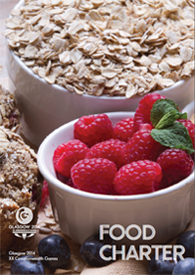
“The world’s marine resources need to be well managed and responsible buying choices are driving demand and encouraging investment for seafood from well managed fisheries and farms,” said Samuel Stone of the Marine Conservation Society, which publishes authoritative information on the sustainability of different seafood sources [5]. “The UN tells us that nearly 80% of the fish that the world eats comes from fisheries that are either fully exploited or over-exploited. With a growing world population, this is an issue of global concern. It’s inspiring to see the organisers of the Glasgow Commonwealth Games and Rio Olympics using their considerable influence to promote fish conservation.”
Sustainable fish likely to grace the menus of sporting heroes and visitors to the 2014 Games are Scottish haddock, Shetland scallops, saithe, brown crab, herring and mussels and organic salmon, pouting and dab.
Claire Pescod, Fisheries Manager for the Marine Stewardship Council [6] Scotland said: “This is a ringing endorsement of the hard work and dedication of MSC certified Scottish fishermen in promoting sustainable fishing practices. Scotland has more MSC certified fisheries than any other European country and supplying the Commonwealth Games helps to recognise their world-leading sustainable fishing practices. This decision will be a real boost to certified sustainable Scottish fishermen. I’m looking forward to seeing the MSC label on sustainable Scottish seafood at the Games.”
Rupert Howes, Chief Executive of the Marine Stewardship Council, said, “The MSC is honoured to be working with the Rio 2016 Olympic and Paralympic Games. This partnership provides a great opportunity to promote and reward sustainable fisheries in Brazil. We will be working closely over the coming years with the state of Rio to encourage local fisheries into the third party assessment process and hope that fish and seafood caught from these and other fisheries that have met MSC's standard for environmentally responsible and sustainable fishing will be available for the Games.”
Notes to editors
- Read the Rio 2016 Olympics sustainable fish announcement at: www.sustainweb.org/sustainablefishcity/fish_news/dec13_rio_2016_olympics_sustainable_fish/. The Rio 2016 organisers estimate that they will serve 14 million meals at the Games.
- The sustainable fish commitment by the Glasgow can be seen on pages 9 and 10 of the Glasgow 2014 Food Charter, see: http://downloads.glasgow2014.com/sites/default/files/documents/PUB-CCW%20Food%20Charter_2013-11-28_V.pdf. The Glasgow 2014 organisers estimate that they will serve 2 million meals at the Games.
- Sustainable Fish City is a campaign for sustainable fish policies to be adopted by influential food buyers, such as government, local authorities, tourist attractions, caterers, companies and restaurants. The campaign is run by a group of conservation organisations, including the Marine Conservation Society, Marine Stewardship Council, Pisces Responsible Fish Restaurants, Seafood Choices Alliance and the Sustainable Restaurant Association, coordinated by the charity Sustain: The alliance for better food and farming. The group advised the organisers of the London 2012 Olympic and Paralympic Games on their sustainable fish policy. Working so far mainly in London, six more Sustainable Fish City campaigns around the UK will launch from January 2014. See: www.sustainablefishcity.net
- The sustainable fish commitment by the organisers of the London 2012 Olympic and Paralympic Games can be seen on page 18 of the London 2012 Food Vision, see: www.sustainweb.org/publications/?id=280. This committed the London 2012 organisers to exclude endangered species and to use only "demonstrably sustainable" fish, as defined by the Marine Conservation Society (MCS), in its 'fish to avoid' and 'fish to eat' lists. The MCS is the UK charity dedicated to the protection of the marine environment and its wildlife, which publishes authoritative sustainability ratings of fish and fisheries, see: www.fishonline.org
- The Marine Stewardship Council (MSC) runs a fishery certification programme and seafood ecolabel to help consumers and businesses pick the best environmental choice in seafood. It also provides MSC Chain of Custody certification (www.msc.org/get-certified) so that fisheries and seafood businesses can be certified to the MSC standards to show that they support sustainable fishing. See: www.msc.org
Published Thursday 12 December 2013
Sustainable Fish: A campaign to protect precious marine environments and fishing livelihoods, and call for fish to be bought from sustainable sources. We want to show what can be done if people and organisations make a concerted effort to change their buying habits.
